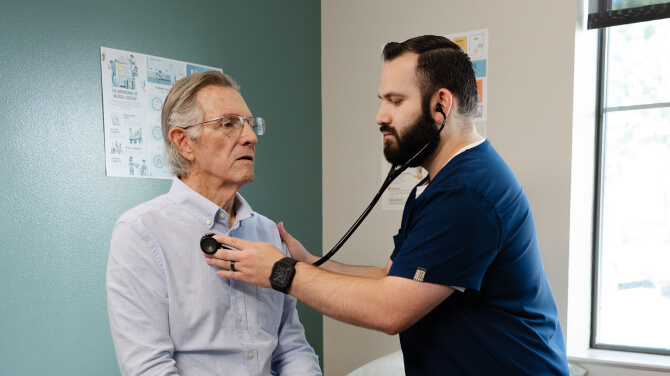Healthcare is becoming more connected, data-driven, and patient-centered. But the glue that holds this vision together isn't just technology—it’s standards. Frameworks like HL7, FHIR, and TEFCA ensure that disparate health IT systems can talk to each other, securely and reliably. Without them, even the most advanced electronic health records (EHRs) and practice management (PM) tools fall short.
As regulations evolve and data demands increase, healthcare organizations must ensure their technology partners are not only compliant with these standards but actively using them to deliver real interoperability today — not just promising it for tomorrow.
Understanding the interoperability standards that matter most
Before diving deeper, here’s a quick overview of the key interoperability standards shaping healthcare data exchange today — from HL7 to TEFCA and beyond.
HL7 (Health Level Seven)
Health Level Seven is a global standards organization that defines how health information is exchanged between systems. It is most well-known for HL7 Version 2 (v2), which enables core workflows like admissions, discharges, and lab results. HL7 v3 introduced more structured and semantically rich messages, but its complexity limited adoption.
FHIR (Fast Healthcare Interoperability Resources)
FHIR is HL7’s modern standard, designed for today’s internet-era healthcare. It is built with RESTful APIs and supports data exchange in JSON and XML. FHIR allows developers to create apps that plug into EHRs for use cases such as clinical decision support, patient access, and population health. It is a cornerstone of the 21st Century Cures Act and the ONC’s interoperability rules.
TEFCA (Trusted Exchange Framework and Common Agreement)
TEFCA is a government-backed framework to standardize how health information networks share data nationally. Overseen by The Sequoia Project as the Recognized Coordinating Entity (RCE), TEFCA aims to create a unified ecosystem for health information exchange (HIE)—reducing friction and improving patient data access.
USCDI (United States Core Data for Interoperability)
USCDI is a standardized set of health data classes—such as vitals, labs, allergies, and care plans—that must be supported by certified health IT. It ensures that all vendors exchange a consistent core set of patient information.
These aren’t just technical terms — they’re the foundation of how healthcare data moves. Understanding them is critical to evaluating whether your systems and your vendors are truly built for modern, connected care.
Why interoperability standards matter for your healthcare organization
Modern healthcare depends on the seamless movement of clinical data—not just between systems, but across entire care journeys. Interoperability standards like HL7, FHIR, and TEFCA determine whether your organization can coordinate care, meet regulatory requirements, and power the next generation of AI and patient-facing tools. Here's why they matter now more than ever.
Interoperability drives care coordination
Patients are mobile. Data should be too. If your systems can’t seamlessly send and receive information—whether to a hospital, specialist, or national network—regardless of what EHR it’s originally stored on, your care coordination will suffer.
Regulatory pressure is increasing
New rules from the ONC and CMS require certified health IT to support FHIR APIs and USCDI data elements. Failing to meet these requirements could affect reimbursement and your eligibility to participate in key programs.
If your systems can’t seamlessly send and receive information regardless of what EHR it’s originally stored on, your care coordination will suffer.
Vendor claims aren’t enough—you need proof
Many vendors claim to support FHIR or HL7, but partial implementation isn’t sufficient. Ask your EHR and PM vendors:
- Are you TEFCA-connected or planning to be? Do you have to pay to exchange data via TEFCA?
- Are your FHIR APIs live and in use by third-party applications?
- Can we use them to extract patient summaries, appointment data, and clinical documents?
- Do your APIs cover write-backs as well as read-only access?
Modern standards enable better patient experiences
FHIR unlocks capabilities like smart scheduling, patient-facing apps, and automated record sharing. The Individual Access Services (IAS) standards mandated by TEFCA ensures that individuals can securely access their health data in one place, no matter how many providers they see. Choosing a vendor that lags behind these standards limits your ability to innovate and personalize care.
AI and analytics depend on accessible, structured data
AI doesn’t work without good data—in this case, complete data about a patient. Interoperability allows for complete data. With the help of standards like HL7 and FHIR, and the right analytics tools, patient data is transformed into usable, structured data that’s ready for machine learning.
What to do next: A checklist for vendor readiness
Successful interoperability is about compliance and more. What makes healthcare systems truly interoperable is execution. Use this checklist to assess whether your technology partners are truly prepared to support seamless healthcare data exchange in practice, not just on paper.
- Confirm your EHR and PM systems support FHIR APIs beyond basic requirements.
- Ask if they are actively participating in or planning for TEFCA.
- Verify whether they meet current USCDI requirements and are positioned for future updates.
- Request a roadmap or documentation of their interoperability strategy.
- Test real-world use cases: record sharing, app integration, and patient access.
Real-time, structured healthcare data exchange is no longer optional
The future of healthcare depends on systems that talk to each other. That means standards like HL7, FHIR, TEFCA, and USCDI are strategic imperatives, not just regulatory checkboxes.
Healthcare organizations need technology partners who don’t just meet basic compliance but demonstrate it in action with tools that structure the data and serve it to physicians at the right moment in clinical workflows and to payers in the right formats to process claims quickly. Because the ability to exchange, access, and act on data — safely and accurately — is what powers modern, patient-centered care.
If your current systems can’t deliver that today, it may be time to ask: are they truly ready for tomorrow?
Learn more about why and how athenahealth is leading the way on TEFCA and interoperability.









